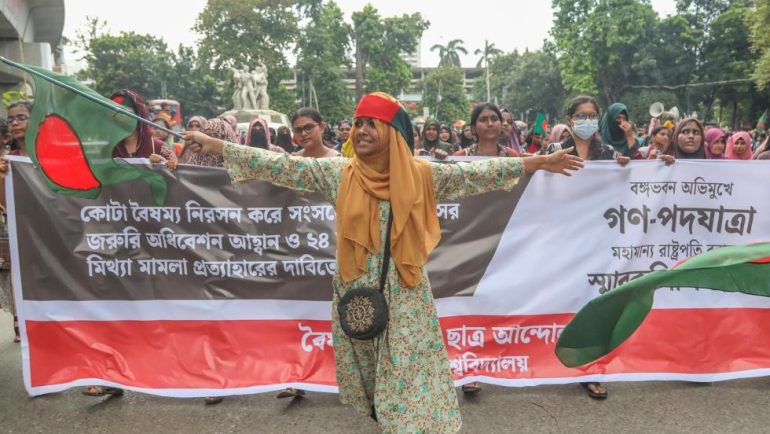Newspaper Article 30/11/2021
Public anxiety spiked as oil prices in Pakistan broke records multiple times over the last few weeks. The prices stand at the highest in the history of the country due to the devaluation of rupees and the high prices of crude oil globally. Changing geopolitical realities also demand Pakistan for the construction of oil reserves.
Public anxiety spiked as oil prices in Pakistan broke records multiple times over the last few weeks. The prices stand at the highest in the history of the country due to the devaluation of rupees and the high prices of crude oil globally. Changing geopolitical realities also demand Pakistan for the construction of oil reserves.
Strategic reserves ensure energy security against both internal and external supply chain vulnerabilities. Today several countries, including South Korea, China and India, have their strategic reserves. The International Energy Agency (IEA) obligates the majority of its members to have strategic reserves equivalent to 90 days of their oil imports, to release in case of any global oil supply disruption similar to that of 1973-74.
After experiencing the surging prices of oil globally, the Cabinet Committee on Energy (CCoE) in Pakistan also ordered a working group led by Oil and Gas Regulatory Authority (OGRA), with the Ministry of Maritime Affairs and Petroleum Division as members, in October this year to expedite conducting a study on the development of strategic oil reserves. Earlier in July the CCoE had ordered Petroleum Division to submit a report on the storage of strategic reserves which led to the present working group. Additionally, a separate working group at National Institute for Maritime Affairs is also working on a technical proposal for constructing strategic oil reserves.
Pakistan’s average oil consumption is 26 million tonnes per annum, of which around 22.1 million tonnes are imported. In addition to this, port congestion at Karachi with only four piers available for the transfer of oil products also risks supply chain disruption at all times. The risk will be exacerbated in event of emergencies like cessation of port operations and war.
Why Strategic reserves are important for Pakistan?
Strategic reserves for Pakistan are not only an economic need but a security imperative as well. During the 1971 India-Pakistan war, Indian forces bombed oil reserves at Karachi Port while the belligerence of the Indian Navy against merchant ships disrupted oil supplies to Pakistan. Karachi and Bin Qasim are still the busiest ports of the country and remain at risk due to their proximity to India. Therefore strategic oil reserves are vital to maintaining the warfighting ability of the forces as well as the economic lifeline of the country during any conflict with India. Experts believe that Pakistan’s oil reserves are mere few days in peacetime, while the country severely lacks the capacity of maintaining reserves for any natural or manmade disaster or conflict with India.
Changing geopolitical realities also demand Pakistan for the construction of oil reserves. Pakistan imported 94% of POL imports in 2019 from Gulf countries, with most of it coming from United Arab Emirates (UAE) and Saudi Arabia. However, in recent years, India’s the trade and political relations with Gulf countries are continuously strengthening. India also relies heavily on Gulf oil imports, making 58% of its total imports in 2019. Arab countries provided oil on deferred payments during various financial, political and security crises in Pakistan.
In the past few years, Gulf countries, particularly UAE and Saudi Arabia, have changed its longstanding stance of supporting Pakistan against India and adopted neutrality on the India-Pakistan conflict and Jammu & Kashmir dispute. In past, the Gulf countries provided considerable support to Pakistan in Jammu & Kashmir dispute and against India. However, their increasing relations and interdependence with India may also compel them to avoid providing emergency support to Pakistan in the eventuality of a war between the two South Asian nuclear rivals. Hence, Pakistan’s reliance on Gulf countries for oil supplies on deferred payments and during a conflict is gradually dwindling. This further adds to the imperative for building Pakistan’s own strategic reserves to support the country in emergency situations.
The construction of strategic reserves is feasible due to the availability of vast land areas and technical expertise in Pakistan. Requisite resources such as pre-fabricated sheets are available in the market and can be used for the construction of reserves indigenously. The inclusion of all relevant stakeholders in the feasibility and construction process can ensure both commercial viability and security assurances. Hence, it is high time that Pakistan should work towards building its own strategic petroleum reserves like other leading nations of the world.
Note: This article appeared in Global Village Space, dated 30 November 2021.
Disclaimer: The views expressed in the article are of the author and do not necessarily represent Institute’s policy.


